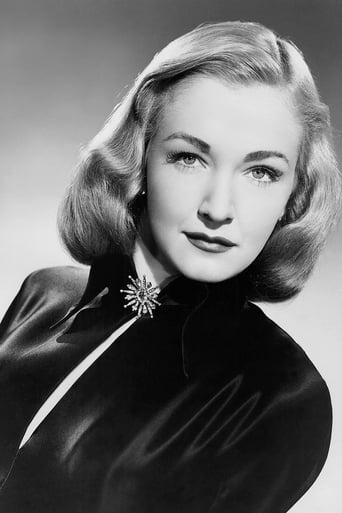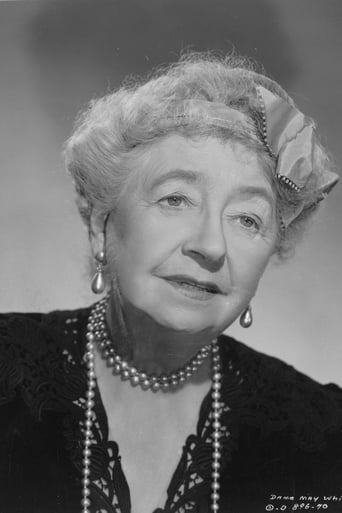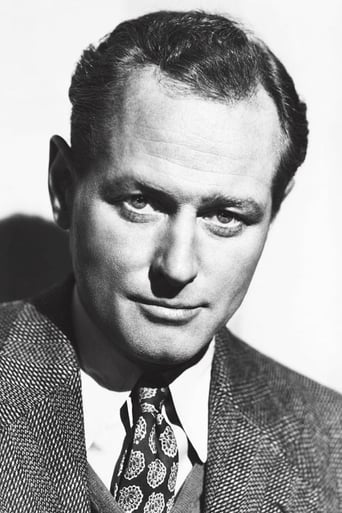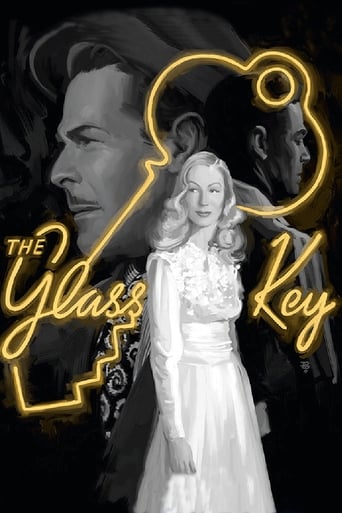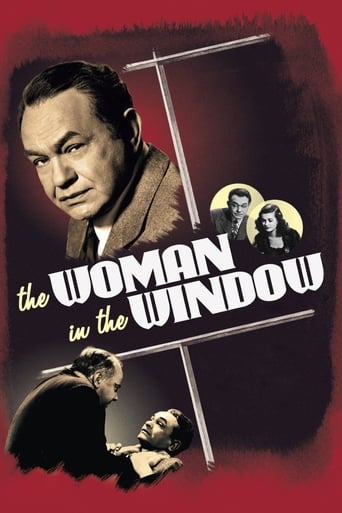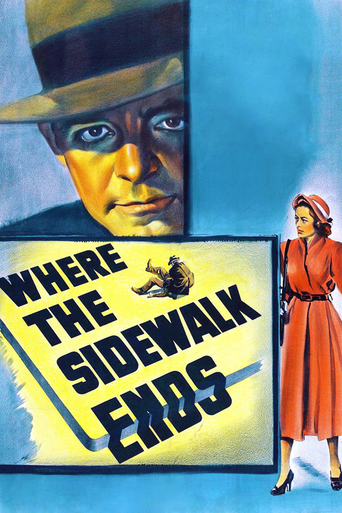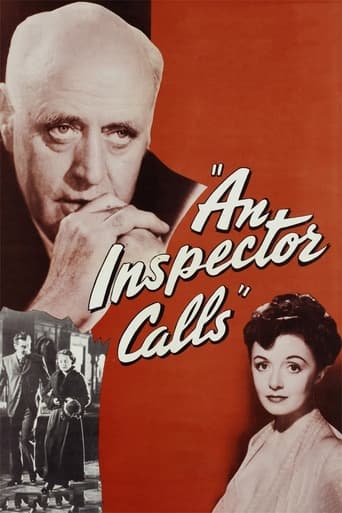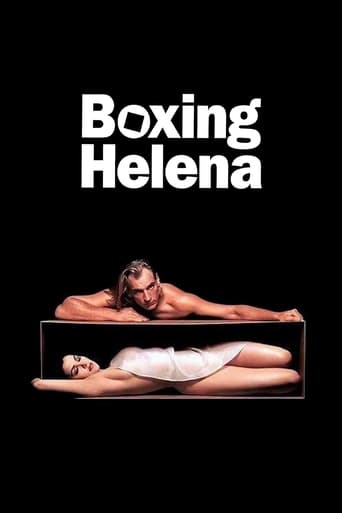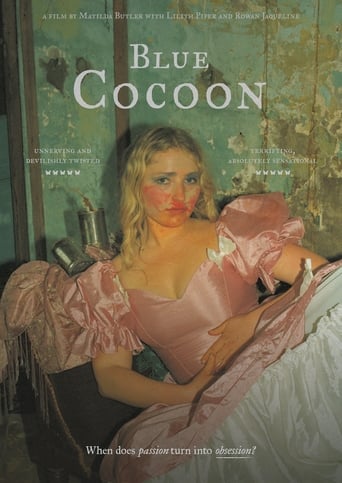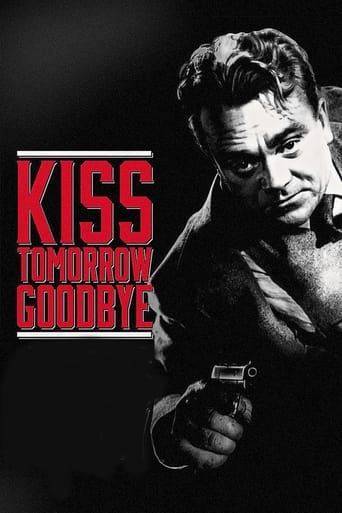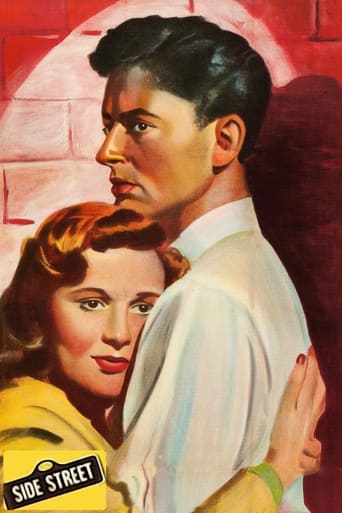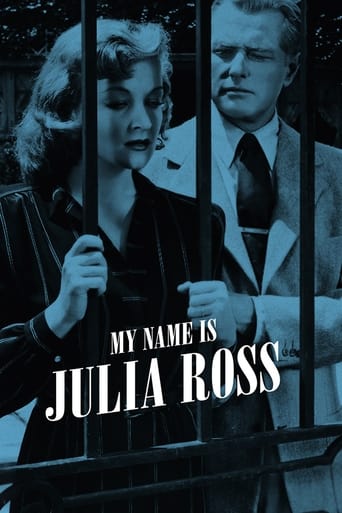
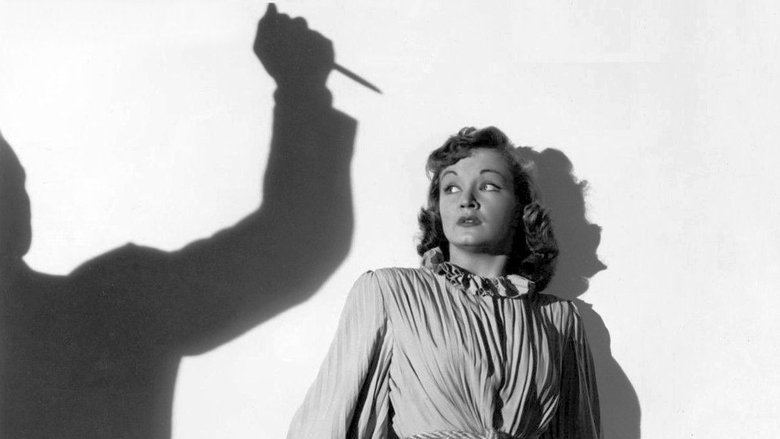
My Name Is Julia Ross (1945)
Julia Ross secures employment, through a rather-noisy employment agency, with a wealthy widow and goes to live at her house. Two days later, she awakens in a different house in different clothes and with a new identity.
Watch Trailer
Cast
Similar titles
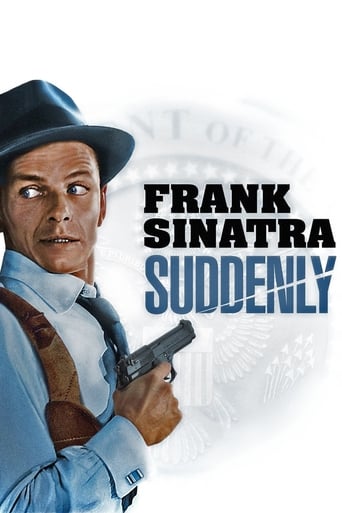
Reviews
Touches You
Lack of good storyline.
Excellent but underrated film
It's the kind of movie you'll want to see a second time with someone who hasn't seen it yet, to remember what it was like to watch it for the first time.
This Gothic noir, with its story of a woman-in-danger who's trapped in a creepy mansion, seems to inhabit the same territory as Alfred Hitchcock's "Rebecca" (1940) and George Cukor's "Gaslight" (1944). Unlike its predecessors however, it's a low-budget offering with a relatively short running time. It's fast-moving, suspenseful and full of snappy dialogue and features a cast of colourful characters who are involved in a particularly evil conspiracy. Director Joseph H Lewis' reputation as a talented filmmaker was cemented by the great commercial success that this movie achieved and his skills in creating a brooding atmosphere and making effective use of close-ups is especially apparent in this tense melodrama.Julia Ross (Nina Foch) is a young lady in London who, after a short period of ill-health, finds herself three weeks behind on her rent and out of work. When she sees a newspaper advertisement for a new employment agency, she immediately goes to visit the agency's office and is interviewed by the rather severe-looking Mrs Sparkes (Anita Sharp-Bolster). After establishing that Julia doesn't have any family ties or a boyfriend, Mrs Sparkes decides that she would be suitable for work as a live-in private secretary to her client, Mrs Hughes (Dame May Witty). Mrs Hughes subsequently approves the appointment and at her insistence, Julia moves into her new employer's house that evening.Next morning, Julia wakes up in a strange bedroom in a mansion overlooking the sea in Cornwall and is told by Mrs Hughes and her son Ralph (George Macready) that she's Ralph's wife Marion and when Mrs Sparkes appears to be working at the house as Mrs Hughes' housekeeper, Julia becomes extremely alarmed and recognises that she's being held prisoner. When Julia protests about her situation, no-one takes any notice because the staff have all been told that she's recovering from a mental breakdown and her numerous attempts to escape all end in failure.Despite the treatment that she's subjected to, Julia never doubts her own sanity or her identity and is reassured in these matters when she discovers a secret passage and overhears Mrs Hughes and Ralph discussing their plans to murder her as part of a scheme to cover up a previous murder. Julia's only chance of escape then seems to rest in her own ability to outwit her captors.As the psychotic villain of the piece, George Macready conveys all the madness and menace that Ralph Hughes embodies as he indulges in his unhealthy obsession with knives and consistently fails to control his violent temper. Dame May Witty is very credible as her character who externally seems to be a typically posh elderly lady but is in fact, cruel, amoral and the mastermind of an extremely wicked conspiracy. Nina Foch, on the other hand, does a great job by showing her fear at times but also by being convincingly natural on other occasions.The disorientation and fear that Julia experiences in this movie are well reinforced visually by the use of tilted camera angles and close-ups and her state of being imprisoned is also emphasised by symbols such as the bars on her bedroom window and a shadow-grid on the staircase wall. Similarly, the shadowy compositions within the mansion contribute to the uncomfortable claustrophobic atmosphere that compliments Julia's predicament perfectly.
"My Name is Julia Ross" is a very, very rare sort of picture. It was created with a very modest budget and cast in order to be the second, or 'B' picture at a double-feature. However, when the film was screened, people liked the film so much that at many showings, it was the premier picture! This is rather unheard of and says a lot about the story from Muriel Bolton and Anthony Gilbert--as well as the direction by Joseph H. Lewis.The film begins with Julia (Nina Foch) looking for work. She's frustrated in her search and is excited when she sees that a new employment agency has opened. They interview her for a job and during the course of the interview, they have some strange questions--does she have any family, does she have a boyfriend and the like. Well, she can answer no to most of the questions but lies about the boyfriend part--telling them she has no one in her life. They are thrilled and offer her a job. Here's the bizarre twist. She suddenly finds herself drugged! And, she wakes up two days later in a prison-like mansion!! And, these strangers begin referring to her by another woman's name! She insists that she IS Julia Ross and demands to be set free but they treat her like she is insane. Her 'mother-in-law' (Dame May Witty) and 'husband' (George Macready) obviously have something awful in mind--but what? And, with all the neighbors having been told that she is a schizophrenic, she cannot convince any of them that she is telling the truth! What's next? See the film for yourself.Th bottom line is that everything works well in this film--the acting, writing, direction, sets. The only negative, and it's a minor one, but back in the 1940s, Hollywood had the Production Code and according to this code, evil had to be punished so viewers know that somehow things WILL work out for good. A similar film that works even better is the 1960s French film "Diaboliquement Vôtre". Likewise a man has been kidnapped and folks work very hard to convince him he's someone else. But because there is no code to restrict the film, the ending is VERY dark and more satisfying. Still, both are exceptional films and I recommend both very highly.
MY NAME IS JULIA ROSS is a mesmerizing 1945 B thriller from Joseph H. Lewis, arguably one of the very finest directors of Hollywood noir films. This 65 minute Gothic oddity from Columbia Pictures came after Lewis' lengthy apprenticeship as the helmer of a string of poverty row westerns, East Side Kids comedies, horror melodramas (including the incredibly bizarre Bela Lugosi shocker THE INVISIBLE GHOST) and standard studio B product (SECRETS OF A CO-ED, BOMBS OVER BURMA, THE FALCON IN SAN FRANCISCO, etc)---all of which set the stage rather nicely for what was to come from the enormously talented and inventive Mr. Lewis. MY NAME IS JULIA ROSS (as well as SO DARK THE NIGHT from the following year) introduced a director who had mastered the rare and delicate art telling a dark and probing tale swiftly and efficiently on the most modest of budgets. Later Lewis productions like GUN CRAZY (1949) and THE BIG COMBO (1955), despite the expanded scope of their narrative structure, continued to rely upon deft, lucid camera work and effective low-key lighting. And very modest resources.MY NAME IS JULIA ROSS probably owes more to the tradition of British mysteries (it's set in a studio-bound England) than it does to conventional film noir attitudes and trappings. A young woman (Nina Foch) agrees to take a position in the home of an elderly woman (Dame Mae Witty). Two days after her arrival she awakens from a deep sleep in a completely strange house and, mysteriously enough, with a brand new identity---that of the old woman's daughter-in-law. Told that she's been the victim of a nervous breakdown, she struggles to grasp the utter and seemingly hopeless nature of her predicament. But before long she begins to piece together the strange and troubling truth behind this dark mystery, that her "husband" (the always menacing George Macready) most probably murdered his real wife and that she's been duped into participating in a harrowing and sinister scheme. Much of what distinguishes this otherwise modest tale are the indelible touches that Lewis brings to the production, marking it as the first of his truly serious endeavors as a film director.
This is one of those films that it seems Alfred Hitchcock should have directed; The Gazebo is another that comes to mind. Similar to "The Wrong Man" (which was a true story), the odds seem so heavily stacked against our heroine that it seems she will never be able to save herself. Another comparison that comes to mind is "Gaslight".Dame May Witty never gave a bad performance in her life, but here, she seems to sleepwalk through a role that doesn't give her much to work with. Her motivations are never fully revealed beyond the convenient fact that she loves her son.George McCready just has to walk in front of the camera to give me a chill. This "over the top" role may have looked silly had any other actor tried to tackle it.And finally, there's Nina Foch. I have always enjoyed watching her, but never thought she was a terrific actress. I WANTED her to be terrific, because she has a naturally exotic and sensual face and overall appearance, but she never seemed to submerge herself in a role - she always seemed a bit distant and aloof. It's interesting to me that she spent decades as an acting teacher/coach. As the saying goes, "Those who can, do; those who can't, teach".
